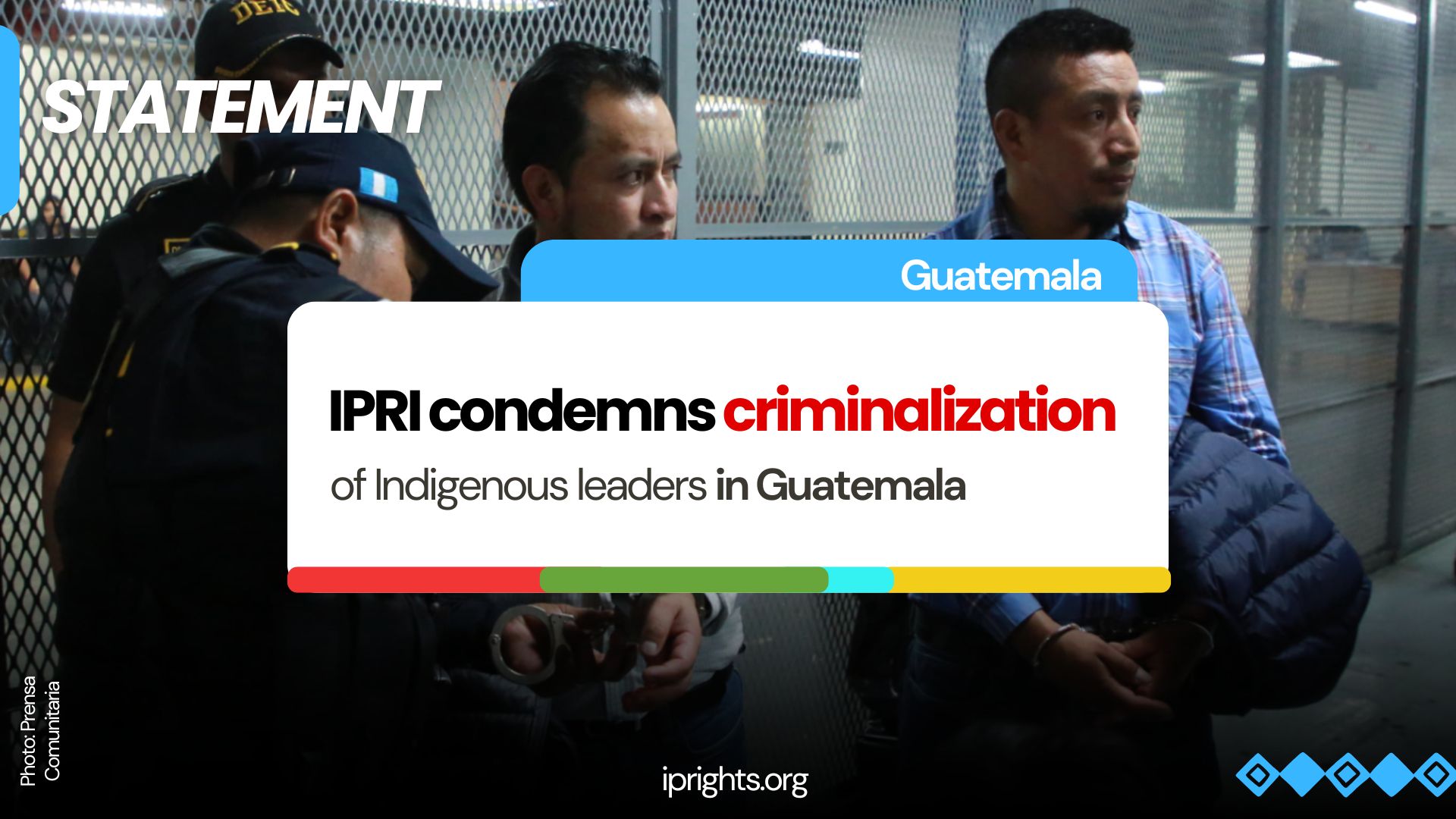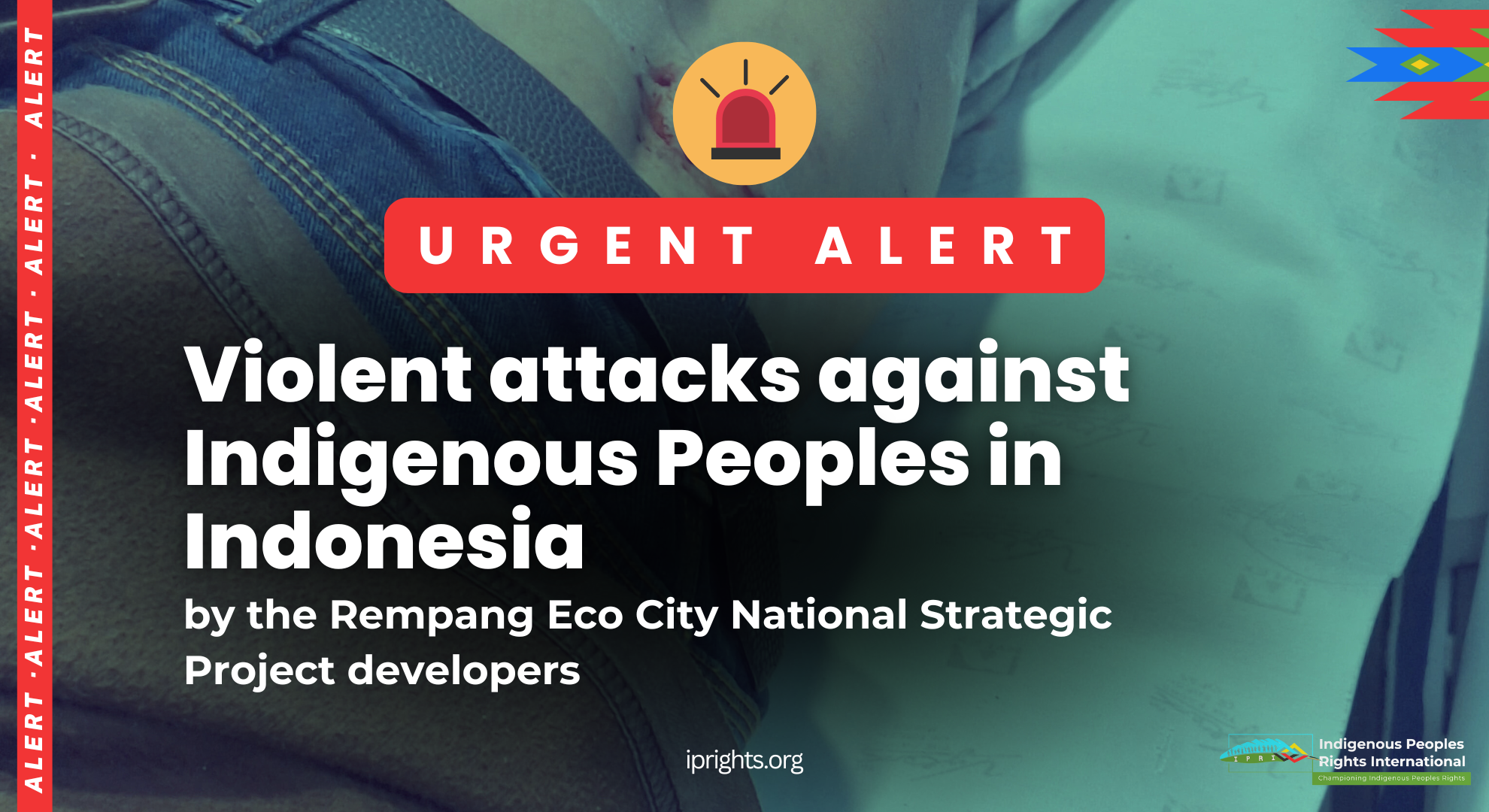April 30, 2025
Indigenous Peoples' Rights International (IPRI), the global indigenous organization that leads the Global Initiative to Address and Prevent Criminalization, Violence and Impunity against Indigenous Peoples, strongly rejects the arrest and imprisonment of indigenous leaders Luis Pacheco and Héctor Chaclán. At the same time, it expresses its solidarity with the detainees, their communities and organizations that have defended democracy, self-determination and the collective rights of indigenous peoples.
According to information gathered by IPRI partners in the territory, on April 23, Luis Pacheco, Vice Minister of Sustainable Development and who served as President of the Board of Directors of Community Mayors of the 48 Cantons of Totonicapán in 2023, and Héctor Chaclán, a member of the same organization, were arrested by order of the Public Prosecutor's Office on charges of sedition, illicit association, terrorism, obstruction of criminal proceedings and obstruction of justice. In addition, three more arrest warrants have been issued but have not yet been executed. Pacheco and Chaclán have been remanded in custody.
The actions for which it is intended to charge these serious crimes date back to October 2023, when various indigenous authorities representing their peoples declared themselves in "Indefinite National Strike", carrying out various peaceful actions in defense of the election results that the Public Prosecutor's Office itself sought to disregard and, more fundamentally, also in defense of the autonomy of their peoples and the constitutional order. Various indigenous authorities have stated that the criminal charges against Mr. Pacheco and Mr. Chaclán are not actions against individuals, but criminalization of indigenous community governance systems. The president of the country himself, Mr. Bernardo Arévalo, has highlighted the criminalizing nature of the action by saying that the arrest warrants constitute an attack on the people of Guatemala.
IPRI considers that these unjustified criminal actions against indigenous authorities constitute a serious violation of the international commitments that the State of Guatemala has voluntarily assumed.
Convention 169 of the International Labor Organization (ILO), a binding instrument ratified by Guatemala, establishes that Indigenous Peoples have the right to maintain their own representative institutions and to participate freely in public life. Likewise, both the United Nations Declaration on the Rights of Indigenous Peoples (2007) and the American Declaration on the Rights of Indigenous Peoples (2016) recognize the right to autonomy, self-determination and not to be subject to acts of discrimination or violence for exercising these rights.
The criminalization of ancestral authorities, such as those of the 48 Cantons of Totonicapán, constitutes not only an attack on indigenous customary law, but also a direct threat to the democratic fabric and legal pluralism that characterizes a State that claims to be intercultural and plural. This misuse of the penal system seeks to repress the right to free demonstration and to defend human rights.
IPRI strongly rejects any attempt to equate the exercise of the right to peaceful protest and self-determination with crimes of terrorism or sedition. In this regard, we urgently call on the Public Prosecutor's Office of Guatemala to:
- Immediately and unconditionally release indigenous leaders Luis Pacheco and Héctor Chaclán.
- To cancel the arrest warrants released in this context of the peaceful exercise of the rights of the indigenous peoples.
- To cease the misuse of criminal law for purposes other than justice.
We call on the State of Guatemala:
- Respect and protect the autonomy of indigenous peoples' own systems of organization and governance.
- Comply with its obligations, guaranteeing the full exercise of the collective rights of Indigenous Peoples in accordance with the assumed international standards.





